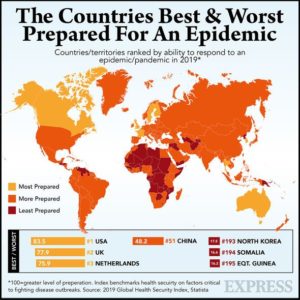
Job interviews during the deadly coronavirus pandemic

Job interviews during the deadly coronavirus epidemic. A remote Job interview during coronavirus pandemic is the best option for overall safety for all involved.
The victims of the novel coronavirus pandemic are increasing after each passing day. It leads most companies around the world, asking their employees working from home. It avoids the commute to the office and the victim’s interaction with other employees, which slow the spread. As a result, recruiters and managers are getting forced to move their hiring processes online. Job interviews during the deadly coronavirus pandemic are mostly remote.
The most immediate change will likely be companies switching in-person interviews to online interviews through video calls. While the core of those interviews is ultimately the same, video interviews differ from in-person meetings. You may have a lot of questions in your mind, including:
- What are the best practices for video interviews?
- What job may seekers encounter over the next few weeks?

Let us dive into the blog to know more about Job interviews on a coronavirus pandemic.

- What you should expect
Companies are always proud when they can fill positions quickly. They may be less bothered about that measure during the coronavirus pandemic, though. In other words, firms may take longer to make you an offer, especially for senior-level positions.
It would be shocking if someone made an offer to a senior candidate without meeting the person. But in this situation, we got no other options than getting the person through several interviews rounds until they can meet the person. Another issue is that it’s likely more challenging to get all the key stakeholders to weigh in on a candidate to make a decision.
If everyone is going out of the office, working remotely and not meeting regularly may be arduous to get everyone on the same page.
While nobody wants to take part in lengthy hiring processes, you need to remember that we are currently dealing with unprecedented circumstances. If you want to land a job, you will need to continue engaging with these processes, no matter how long it takes to get considered for roles.
- Do a thorough research
Fortunately, the first move in preparing for video interviews is not associated with what you did before the beginning of the epidemic. The key is to do as much homework and research ahead of an interview as possible.
During your research, it’s essential to find potential topics of conversation with interviewer or interviewers. Video interviews tend to involve less small talk and be shorter than in-person meetings. So, it is even more vital that you make an effort to form a bond with the recruiter on the other side of the screen. For example, you can look for things to talk about on the interviewer’s LinkedIn profile. Or, you can mention anything they said on a podcast or anywhere else.
- Prepare your space and practice
Unlike in-person interviews, video interview often opens a window into your personal life. As a human, we make decisions about what people’s spaces or homes look like. You shouldn’t let hiring managers see a messy surrounding piled up with mountains of waste papers or crooked picture frames.
Instead of it, opt for a neutral background with good lighting. Also, ensure the camera is at eye level to avoid any unflattering angles.
One of the benefits to video interviews is that you can have notes in front of you or around your workplace. The person doesn’t have to know about that. Moreover, if you have dual monitors, you can keep one for the interview and the other one for your notes.
For you don’t have a proper space or a laptop with a built-in camera, local libraries can often be a one-stop-shop for your job hunt. They may even have a peaceful space for you to sit with your laptop for the interview. Alternatively, you can ask any local co-working spaces if they have a room and equipment to rent.
Lastly, you will want to practice talking to the camera, which is more complicated than it seems. You can put a pair of googly eyes right near the camera lens. It encourages you to look at the camera during the interview session. Never look down, off to the side or elsewhere. You have to ensure you have good eye contact.
- During the interview
While many of the in-person or video job interview questions will be the same, you should ask for specific information about the firms hiring timeline. You should also ask if the position will be remote until the outbreak is over and how the firm will proceed with the onboarding process if they continue to work remotely for a month or two.
It’s also crucial during a video interview to tell the recruiter how interested you are in the opportunity. You should thank him for their time to interview you. Tell them how impressed you are with the team and say how honoured you are to get considered for the position. Never leave any doubt in his mind that you want to be there.
Additionally, you should expect the unexpected during these next few weeks while people are working from home. While everyone will want to continue with their professional tasks, life can sometimes get in the way when children, pets or even the doorbell intrude on a video interview. The best thing you can do is showing grace and hope they will return the favour.
The Bottom line
The coronavirus is shaking up how recruiters operate. The recruiters and companies are moving job interviews to video. In some ways, the switch has made their jobs easier since many of their clients are working from home. Instead of waiting to hear back from people who may be at meetings or walking around the office, the clients are at home and available to talk when needed. The downside is that a face-to-face meeting is still needed to secure larger positions, meaning recruiters may need to wait to cash in on fees until the outbreak is over.




